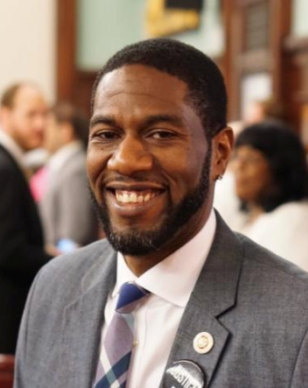Intro 1039, a bill introduced by Councilmember Williams which is part of the Housing Not Warehousing Act, mandates the city to register vacant buildings and lots that could be developed as affordable housing.

On Monday, Mayor de Blasio signed into law two bills from the Housing Not Warehousing Act which is designed to help identify vacant sites and create an inventory which could be used for affordable housing development. The new legislation means a major breakthrough in the city's efforts to tackle NYC's longstanding homeless problem and the affordable housing crisis.
"For the first time in its history, New York City will be empowered to conduct a census of vacant property. The affordable housing and homelessness crisis we face presents an incredibly complex problem and enacting this legislation provides us with essential tools toward creating solutions," said Councilmember Jumaane Williams, sponsor of one of the two bills. "Finally, we'll be able to understand the extent of property warehousing throughout the five boroughs and craft real policy solutions that create housing for all New Yorkers."

The Housing Not Warehousing Act consists of three bills. Intro 1039, sponsored by Williams, requires the Department of Housing Preservation and Development (HPD) to report on vacant buildings or lots under the jurisdiction of HPD, categorized by the feasibility of development of those buildings or lots as affordable housing. Intro 1036, which was sponsored by Councilmember Ydanis Rodriguez, requires the city to analyze data from various agencies to estimate the number of vacant buildings and lots in areas zoned to permit residential use; it also mandates that the city use the analysis to create a list of potentially vacant lots and buildings. The third bill, introduced by Public Advocate Letitia James, has not yet been voted on.
The Housing Not Warehousing Act is seen as a key tool for the preservation and construction of affordable housing units in the city. Housing advocates have long argued that the city will be better equipped to address the affordability crisis with a knowledge of which public properties could be put to a better purpose and which private landlords must be pushed to stop warehousing their properties.
"Today marks a turning point in the fight for housing for homeless folks," said Picture The Homeless Executive Director Monique George. "This is the first step toward holding landlords accountable, especially in areas of heavy gentrification."
The enacting of this law comes as the de Blasio administration has announced its new goal of creating or preserving 300,000 affordable housing units by 2026.



